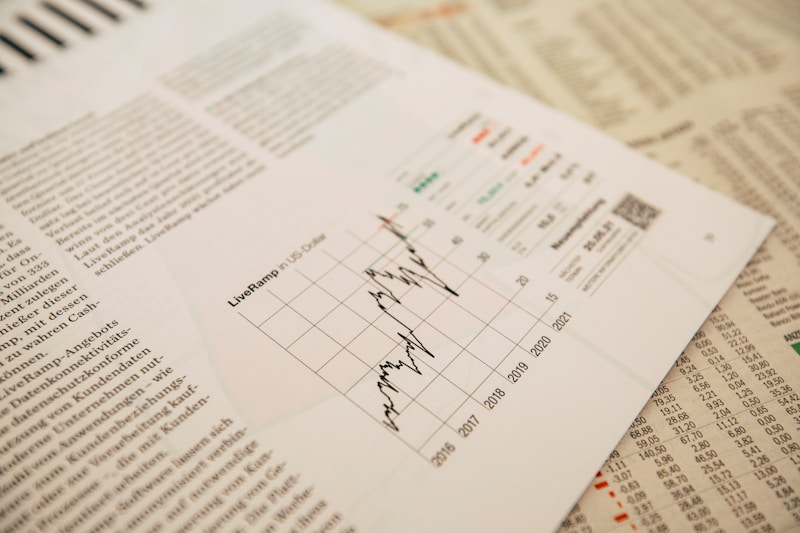Questions and Answers
What is the typical duration for Accounts Payable?
Usually due in full in maybe thirty days.
What is the primary difference between Accounts Payable and Notes Payable?
Notes Payable is long-term, usually due in several years.
Accounts Payable usually has interest associated with it.
False
Which of the following statements is true about interest on loans?
Signup and view all the answers
How much inventory do you receive when you buy 100 lemons at 20 cents each?
Signup and view all the answers
What should you expect your total assets to be after receiving inventory worth $20?
Signup and view all the answers
You exchange $20.00 in cash for what? __________.
Signup and view all the answers
After updating your financial records, you should be in balance with $54 in Liabilities and $15 in Equity.
Signup and view all the answers
What type of Balance Sheet is created at the beginning of a new week?
Signup and view all the answers
What do we call earnings from past accounting periods?
Signup and view all the answers
What is the total cash amount after borrowing $50 from the bank, starting with $13.00?
Signup and view all the answers
The ending inventory from last week becomes the beginning inventory for this week.
Signup and view all the answers
Retained Earnings show us all the earnings in a business from when? From ____ accounting periods.
Signup and view all the answers
What is the term for the amount owed to the banker?
Signup and view all the answers
Which transaction shows an increase in cash due to the sale of lemonade?
Signup and view all the answers
What financial category do we record when we purchase goods on credit?
Signup and view all the answers
Match the following financial concepts with their descriptions:
Signup and view all the answers
All small businesses have to pay a dividend to their owners.
Signup and view all the answers
What is Accounts Payable?
Signup and view all the answers
What is Notes Payable?
Signup and view all the answers
Accounts Payable generally comes with interest.
Signup and view all the answers
What do both Accounts Payable and Notes Payable establish?
Signup and view all the answers
How much do you pay for 100 lemons at 20 cents each?
Signup and view all the answers
When paying for lemons in cash, what account does the amount go into?
Signup and view all the answers
What should total Assets amount to after recording the transactions?
Signup and view all the answers
What should total Liabilities amount to after recording the transactions?
Signup and view all the answers
What should total Equity amount to after recording the transactions?
Signup and view all the answers
The company is in balance after all transactions are recorded.
Signup and view all the answers
What is the Ending Balance Sheet for last week called?
Signup and view all the answers
What does the Ending Inventory from last week become for this week?
Signup and view all the answers
What are earnings from past accounting periods called?
Signup and view all the answers
Earnings Week to Date represents earnings from past accounting periods.
Signup and view all the answers
What do real businesspeople borrow money from?
Signup and view all the answers
What did the banker say about giving loans to kids?
Signup and view all the answers
How much cash did the bank loan?
Signup and view all the answers
What do we show the $50.00 loan from the bank as?
Signup and view all the answers
What inventory did the character purchase from Pappy?
Signup and view all the answers
What was the total cost for the sugar purchased?
Signup and view all the answers
What type of account was set up with Pappy for the sugar purchase?
Signup and view all the answers
What is the difference between Notes Payable and Accounts Payable?
Signup and view all the answers
What is Accounts Payable?
Signup and view all the answers
What is Notes Payable?
Signup and view all the answers
Which has interest? (Select one)
Signup and view all the answers
What do both Accounts Payable and Notes Payable establish?
Signup and view all the answers
You buy 100 lemons at 20 cents/lemon. How much cash do you exchange?
Signup and view all the answers
What goes into Inventory when you pay cash for lemons?
Signup and view all the answers
What should your totals add up to after accounting for assets and liabilities?
Signup and view all the answers
Accounts Payable typically comes with interest.
Signup and view all the answers
What type of Balance Sheet is last week's report?
Signup and view all the answers
What does last week's Ending Inventory become for this week?
Signup and view all the answers
What are earnings from past accounting periods called?
Signup and view all the answers
What amount needs to be rolled up into Retained Earnings?
Signup and view all the answers
How much money was borrowed from Mom and Dad?
Signup and view all the answers
The banker discriminates against kids when giving loans.
Signup and view all the answers
What was the total sales amount from last week?
Signup and view all the answers
What is the return on investment if $5 was invested and $10 was earned?
Signup and view all the answers
What financial category do you set up with the grocer?
Signup and view all the answers
What kind of Liability represents money owed to the bank?
Signup and view all the answers
How much credit was given to the lemonade seller by Pappy?
Signup and view all the answers
Study Notes
Lemonade Stand Accounting
- A sunny Monday morning is ideal for selling lemonade, presenting opportunities for profit.
- The last week's Ending Balance Sheet indicates a cash balance of 13.00andatotalowner’sequityof13.00 and a total owner’s equity of 13.00andatotalowner’sequityof15.00.
- Ending inventory from one week becomes the Beginning Inventory for the next week.
- Transitioning from Ending to Beginning Balance Sheet requires accounting for retained earnings from the previous week.
- Retained Earnings accumulate earnings not distributed as dividends, showing past financial performance.
Debt and Business Growth
- Real business growth involves seeking loans from traditional banks rather than relying on family.
- The protagonist confidently presents their financial records to the banker, boasting 13.00incash,zerodebt,and13.00 in cash, zero debt, and 13.00incash,zerodebt,and10 in retained earnings.
- The banker, impressed by the organized financial records, agrees to loan $50.00, increasing cash and notes payable in the balance sheet.
Inventory Management
- After receiving a loan, the protagonist sells remaining inventory for $2.00, converting it into cash while retaining no inventory.
- The change in inventory affects the Income Statement but does not impact total asset value.
Building Credit and Accounts Payable
- The protagonist seeks credit from Pappy Parker at the grocery store, attempting to establish an account for purchasing supplies.
- The terms "Notes Payable" (bank loans) and "Accounts Payable" (credit for goods/services) categorize different types of liabilities.
- Notes Payable generally involves cash received with an interest obligation, while Accounts Payable pertains to goods received without interest unless payment is late.
Purchase and Inventory Increase
- Cash is used to purchase inventory, such as 100 lemons for $20.00, reflecting an asset exchange with no net change in total assets.
- Transactions should maintain balance in the balance sheet, ensuring total assets match total liabilities plus equity.
Lemonade Stand Accounting
- A sunny Monday morning is ideal for selling lemonade, presenting opportunities for profit.
- The last week's Ending Balance Sheet indicates a cash balance of 13.00andatotalowner’sequityof13.00 and a total owner’s equity of 13.00andatotalowner’sequityof15.00.
- Ending inventory from one week becomes the Beginning Inventory for the next week.
- Transitioning from Ending to Beginning Balance Sheet requires accounting for retained earnings from the previous week.
- Retained Earnings accumulate earnings not distributed as dividends, showing past financial performance.
Debt and Business Growth
- Real business growth involves seeking loans from traditional banks rather than relying on family.
- The protagonist confidently presents their financial records to the banker, boasting 13.00incash,zerodebt,and13.00 in cash, zero debt, and 13.00incash,zerodebt,and10 in retained earnings.
- The banker, impressed by the organized financial records, agrees to loan $50.00, increasing cash and notes payable in the balance sheet.
Inventory Management
- After receiving a loan, the protagonist sells remaining inventory for $2.00, converting it into cash while retaining no inventory.
- The change in inventory affects the Income Statement but does not impact total asset value.
Building Credit and Accounts Payable
- The protagonist seeks credit from Pappy Parker at the grocery store, attempting to establish an account for purchasing supplies.
- The terms "Notes Payable" (bank loans) and "Accounts Payable" (credit for goods/services) categorize different types of liabilities.
- Notes Payable generally involves cash received with an interest obligation, while Accounts Payable pertains to goods received without interest unless payment is late.
Purchase and Inventory Increase
- Cash is used to purchase inventory, such as 100 lemons for $20.00, reflecting an asset exchange with no net change in total assets.
- Transactions should maintain balance in the balance sheet, ensuring total assets match total liabilities plus equity.
Lemonade Stand Accounting
- A sunny Monday morning is ideal for selling lemonade, presenting opportunities for profit.
- The last week's Ending Balance Sheet indicates a cash balance of 13.00andatotalowner’sequityof13.00 and a total owner’s equity of 13.00andatotalowner’sequityof15.00.
- Ending inventory from one week becomes the Beginning Inventory for the next week.
- Transitioning from Ending to Beginning Balance Sheet requires accounting for retained earnings from the previous week.
- Retained Earnings accumulate earnings not distributed as dividends, showing past financial performance.
Debt and Business Growth
- Real business growth involves seeking loans from traditional banks rather than relying on family.
- The protagonist confidently presents their financial records to the banker, boasting 13.00incash,zerodebt,and13.00 in cash, zero debt, and 13.00incash,zerodebt,and10 in retained earnings.
- The banker, impressed by the organized financial records, agrees to loan $50.00, increasing cash and notes payable in the balance sheet.
Inventory Management
- After receiving a loan, the protagonist sells remaining inventory for $2.00, converting it into cash while retaining no inventory.
- The change in inventory affects the Income Statement but does not impact total asset value.
Building Credit and Accounts Payable
- The protagonist seeks credit from Pappy Parker at the grocery store, attempting to establish an account for purchasing supplies.
- The terms "Notes Payable" (bank loans) and "Accounts Payable" (credit for goods/services) categorize different types of liabilities.
- Notes Payable generally involves cash received with an interest obligation, while Accounts Payable pertains to goods received without interest unless payment is late.
Purchase and Inventory Increase
- Cash is used to purchase inventory, such as 100 lemons for $20.00, reflecting an asset exchange with no net change in total assets.
- Transactions should maintain balance in the balance sheet, ensuring total assets match total liabilities plus equity.
Studying That Suits You
Use AI to generate personalized quizzes and flashcards to suit your learning preferences.
Description
In this chapter, we explore the business of selling lemonade and the basics of creating a balance sheet. It discusses the importance of assets and liabilities for a budding entrepreneur. Get ready to dive into the world of beverage sales and financial management!




